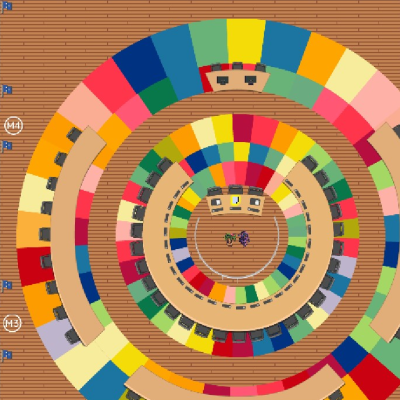
(Question) The intensity of the Nagorno-Karabakh conflict has been reignited over the last few months. Can you recall where it stems from and how would you describe the situation between Armenia and Azerbaijan over this land at the moment?
(Giragosian response) Obviously, the roots of the Nagorno-Karabakh conflict stem from a long and complex history going back decades. In a general sense, the Karabakh conflict was yet another example of a Soviet “nationalities” policy to promote neo-colonial control and inter-dependence and prevent sovereignty and independence. From this perspective, the transfer of the Armenian majority-populated Karabakh enclave to Azerbaijan in the Stalinist period was an effective tool for Soviet dominance. Through the post-Soviet period the Karabakh conflict was then used to enhance and ensure Russian leverage and influence over both Armenia and Azerbaijan.
Yet without going too far into the historical record, the situation was dramatically and abruptly altered in 2020, following the launch of a serious 44-day war by . Since the end of that war in late 2020, Azerbaijan has continued a steady escalation and expanded the conflict to include direct attacks and incursions against Armenia proper. Against that backdrop, the current post-war situation continued to be marked by profound insecurity for Armenia and Nagorno-Karabakh and by looming instability for the wider South Caucasus region.
The latest disaster for Armenia is the “siege of Karabakh”, with the roughly 140,000 Armenian population of Nagorno-Karabakh currently facing a humanitarian disaster, with serious shortages of critical medicines, basic food staples and dwindling supplies. This humanitarian crisis is magnified by the Azerbaijan refusal to allow access to Karabakh by the UN or international aid organizations. The sole exception has been the International Committee of the Red Cross (ICRC), whose impressive efforts led to the delivery of some 10 tons of various drugs delivered to Karabakh from Armenia.
Moreover, since 12 December 2022, the Karabakh Armenians have been dangerously isolated and cut off as a result of Azerbaijan’s blockade of the one road into and out of the Karabakh enclave. The current crisis is now defined by a vulnerable Armenian population forced to live under conditions only reminiscent of a medieval siege.
In this post-war period of insecurity and uncertainty, only one thing is certain: Russia has become clearly unreliable and consistently unpredictable. Today’s Russia poses a deadly new challenge and since Moscow’s failed invasion of Ukraine, the logic and expectations of Russian security obligation to Armenia no longer apply. Moreover, the timing of Azerbaijan’s imposition of a blockage of Karabakh is no accident. The Azerbaijanis are acting because they can and they are daring to defy Moscow for two reasons.
First, Russia remains distracted and overwhelmed by its failed invasion of Ukraine. Such Russian unwillingness and incapacity to respond to Azerbaijan’s blatant violations of the ceasefire agreement that ended the 2020 war is especially significant, as the presence of some 2000 Russian peacekeepers remains the only source for security and protection of the Karabakh population.
Second, Azerbaijan is emboldened and empowered by both the perception of Azerbaijani leverage over the European Union after a strategic gas deal with the EU and by the reality of influence and command over Turkey.
Against that backdrop, the contrast between the Russian inaction and Western reaction is startling. This is also evident in the failure of Russia to respond to Azerbaijan’s flagrant violation of the ceasefire agreement in place since late 2020. And in this context, the Azerbaijani moves against Karabakh are also challenges to Russian power and presence in the region. Yet Azerbaijan is playing with fire, dangerously testing the limits of Russian patience and inviting a possibly deadly “day of reckoning” between Moscow and Baku. But that will still be too late for the Karabakh Armenians.
(Questions) For several decades, Russia has seen itself as the arbitrator of the conflict, drawing on its broader role in the region. Can you tell us more about the international supports Armenia and Azerbaijan received from Moscow or elsewhere in the past?
Russia’s invasion of Ukraine bears as a consequence that Moscow retrieves from an active role. Isn’t this a good opportunity for the EU to assert its geopolitical power in the region? What can we make of the recent set up of an EU mission in Armenia under the Common Security and Defence Policy ()?
(Giragosian responses) Despite the now obvious mistakes, missteps and miscalculations in Russia’s failed invasion of Ukraine, Russian President Vladimir Putin has excelled in one area: making enemies and losing friends. From Central Asia to the South Caucasus, each of Russia’s neighbours now understands the weakness of Russia and recognizes that Russia is ever more dangerous and deeply isolated. And nowhere is that as clear as in Armenia.
More specifically, Russia presents a new and more serious challenge for Armenia: that of an unreliable partner. But it is not only Russia that has lost Armenian confidence, but also that the Russian-dominated Collective Security Treaty Organization (CSTO) is now facing a power vacuum. This stems from the failure of the CSTO to adequately respond to Azerbaijani attacks on Armenia and that has only reaffirmed the empty value and bankruptcy of the so-called alliance. In the current context, the organisation is more aptly seen as the Collective INSECURITY Treaty Organization.
More broadly, Russian President Putin’s failed invasion of Ukraine has also gravely, if not fatally weakened Russian power and influence. And with the demonstrable defeat of the vaunted Russian military, we now see an isolated, angry and vengeful Putin, especially sensitive to any signs of weakness.
For Armenia, which is now moving much faster and farther to the West and the European Union, the contrast between the Russian inaction and the Western reaction is startling. This is also evident in the recognition that in response to war in Ukraine and in reaction to Azerbaijan’s attack on Armenia, Europe’s actions are for the first time matching its aspiration.
(Question) In your view, has the war in Ukraine drawn the Caucasus rather closer to the EU or further away? Through your teaching activities at the Natolin campus of the College of Europe, you have an extended network of acquaintances in the region. How do they envisage their future and the geopolitical place of their homelands?
(Giragosian response)
The Impact of Russia’s Failed Invasion of Ukraine
Since the unjustified and unprovoked Russian invasion of Ukraine, the failure of the Russian military campaign has revealed that the Russian military is much weaker than previously thought. The repercussions from the unexpected weakness of the Russian military have also fostered a new realization among many of Russia’s neighbors that although they may come under threat from Russia, the limits of Russian power and influence are now undeniable.
One notable example of this is evident in Azerbaijan’s recent escalation and challenge to Russian peacekeepers in Nagorno Karabakh. In this context, Azerbaijani aggression is as much directed against Russia, in open defiance of Moscow, and no longer limited to only pressuring Armenia and Karabakh.
And for other “frozen” conflicts, ranging from Georgia to Moldova, Russia may seek to enforce its declining power in a show of strength. Although a move of desperation, Russian failure in Ukraine may only encourage a more dangerous, isolated and resentful Russian leadership to demand greater loyalty among its “allies,” like Armenia and the Central Asian states, while also pressuring other neighbors.
In strictly military terms, Russia’s invasion of Ukraine has little to no direct impact on the Russian peacekeeping mission in Nagorno Karabakh. But in diplomatic terms, Azerbaijan has already taken advantage of the situation by increasing pressure on Armenia and Karabakh, as seen by the ongoing blockade of Karabakh. Azerbaijan’s strategy consists of more than simply taking advantage of the distraction presented by the war in Ukraine or to increase pressure on Armenia, however, and stands out as a bold defiance of Russia. In this context, Azerbaijan has become quite emboldened to challenge Russia. And bolstered by Turkish support, this Azerbaijani strategy is only likely to continue.
For over twenty years, Armenian foreign policy has been defined by a pursuit of “complementarity,” where Armenia struggled to maintain a strategic “balance” between its security partnership with Russia and its interest in deepening ties to the EU and the West. This policy has been difficult to maintain over the years, especially given the underlying trend of Armenian dependence on Russia driven by security and military ties. But since the 2020 war for Nagorno Karabakh, the limits of Russian security promises to Armenia have become open and obvious. And with the Russian invasion of Ukraine, Armenia now faces an even more imposing and perhaps impossible challenge to meet Moscow’s expectations for loyalty and support for Russian aggression against Ukraine.
In that context, Armenian diplomacy has sought to engage in a delicate dance between not openly angering Russia while avoiding being caught on the wrong side of history by siding with the Russian aggressor. This is why the Pashinyan government has relied on a tactical policy of employing “strategic silence,” designed to do no more than the basic minimum to not defy Moscow.
But there are limits to such “strategic silence” by Armenia, as demonstrated by Armenia’s reluctant vote in the Council of Europe against the move to suspend Russia from that body. And although Armenia’s position, as the only other country besides Russia to oppose that move, dangerously isolates Armenia, there was little choice and even less of an alternative for Armenia. Yet the danger now is as Russia demands greater support and more open loyalty from Armenia after Russia’s invasion of Ukraine, any sense of diplomatic balance may be lost, threatening to push Armenia into a vulnerable and isolated position on the wrong side of history.
……………………………
Richard Giragosian is the Director of the Regional Studies Center (RSC), an independent “think tank” in Yerevan, Armenia.






